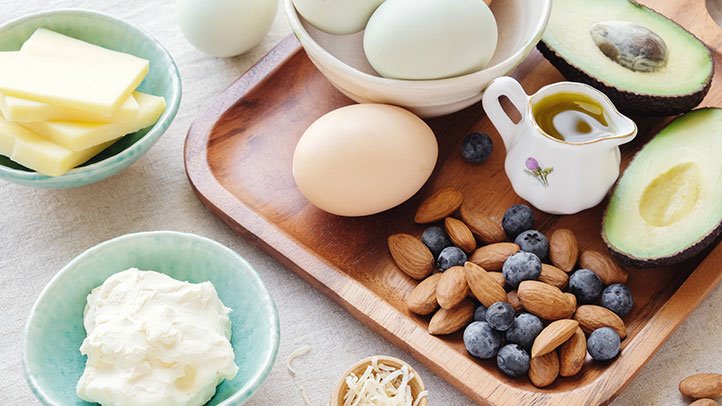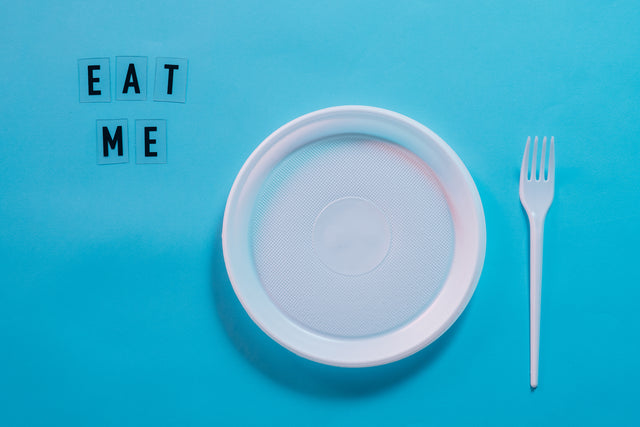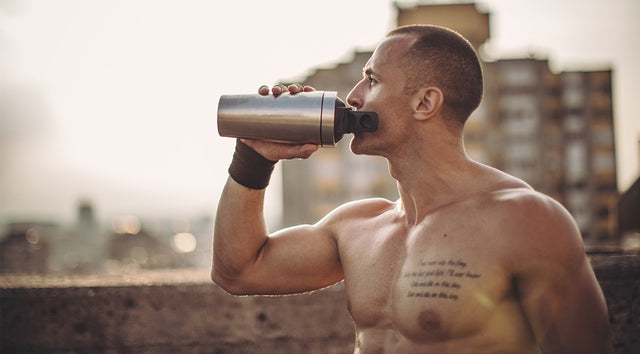Going keto is more than just a diet, it's a new and very popular lifestyle that most individuals can actually stick to and maintain. While the research on sustainability isn't out just yet, it's no secret that the ketogenic diet helps weight loss. I mean, think about it. Cutting sugars, refined and processed foods, and increasing healthy fat intake seems like a winning combination for most individuals. From non-athletes to athletes, managing hunger levels while delivering your body the nutrients it needs, helps increase fat-burning capabilities and keto advanced weight loss without feeling deprived like most diets.
Ketosis and Ketogenic Diet Mindset
Athletes and non-athletes alike know the importance of mindset when approaching any type of task or adversity. It's also important to be realistic. The keto diet honestly doesn’t work for everyone. Just like every other diet. Finding the diet that is right for your goals, needs, and lifestyle is the most important part.
You may have tried low carb diets in the past and failed, and you may very well be wary to try one again. With the proper guidance through keto-adaptation with a reasonably simple and satisfying weight-maintaining diet, athletes can workout on a keto diet and are successful at doing so.
So what does mindset have to do with it?
If you don’t believe that a low carbohydrate or ketogenic lifestyle is safe or sustainable, or even right for you, then chances are, it won’t be. But if you are willing to change that same negative mindset into a positive one, and are willing to seek out the proper answers and guidance, with the confidence and willpower to succeed, the dietary strategy behind the ketogenic and low-carbohydrate lifestyles will work for you.
**MYTH BUSTER** "I can't survive without carbs" Eh, not exactly true. Within the class of nutrients classified as ‘carbohydrates’, there actually is no single molecule that is essential for human health and/or well-being. This definitely doesn’t mean that blood sugar is completely unimportant, but rather than blood sugar can be well-maintained via metabolic processes such as gluconeogenesis without dietary carbohydrates in the keto-adapted human.
Reducing Your Carbohydrate Intake
It’s extremely important to fixate our mindset on the idea that the journey is the joy of the process, not just the end goal. The same idea can be applied to setting out on a carb cutting journey. Americans and much of the world have very strong mental and emotional ties to carbohydrates. It’s a way of life, its part of our lifestyles and culture, it just simply goes against modern day thinking to cut out carbs. But just because you’re taking the right steps in the carb cutting direction doesn’t mean you’re going to change the representation or image of yourself within your roles of family and society – it simply means that you are making an adjustment to take an interest and investment in your health.
Carb cutting is an adjustment. As you immerse yourself into the ketogenic lifestyle, you may quickly discover cutting carbs and sugar out of your diet can be hard. You have to be willing to commit to changing years of eating habits and maybe even introduce new foods. Which, unfortunately, is easier said than done. You may even get the keto flu.
It’s extremely important to fuel your journey by educating yourself as much as possible on the carbohydrate and fat contents of the foods you currently eat.
RELATED ARTICLE Complex Vs. Simple Carbs
When going keto, it also helps to develop a consistent and fluid keto shopping list to ensure having various low-carb foods on reserve. We recommend staying on the outskirts of the store, avoiding the processed foods in the middle. Stick with meats, cheeses, fresh vegetables and berries rich with antioxidants.
How Many Carbs Should You Eat A Day on Keto?
Creating an environment within your body to be at a nutritional state of ketosis and maintaining it long enough to complete full keto-adaptation requires effort and time. To be exact, it’s about 2-4 weeks of carbohydrate restriction. While the specific amount/numbers of carbs to restrict in order to optimize fat burning and fat loss varies from individual to individual, most efforts are required to be under 50 grams per day.
Finding your keto carb limit may seem daunting at first, but again, you've got to trust the process and ease into it. Cutting carbs It may sound scary at first and that’s totally ok! We’ve been groomed and taught from societal norms that it is totally ok to consume upwards of 12 times that amount in just a single day. With the ketogenic diet lifestyle, 50 grams of carbs with proper low-carb substitutes is not only manageable but maintainable and actually extremely enjoyable. You don’t have to give up satisfying foods, nor high-fat or highly satiating foods to achieve this.
Too Much Protein on Keto
You will be increasing your protein intake on a ketogenic diet. You’re going to be eating more fat and protein as compared to carbs and once you’re keto-adapted your body will recognize satiety and enjoyment from fat and eating fat-containing foods. Does that mean eating twice the amount of steak and giving up that loaded baked potato? Yes. How much protein can you eat in ketosis? The recommended amount of protein intake per day in ketosis will vary for each individual. A rule of thumb is .45g - 1g per pound of bodyweight. If you're really determined to get into ketosis and are hardcore about measuring your numbers with a blood-ketone meter with test strips, you need to aim for blood-ketone levels at 1.5 mmol/L or above.
Cutting Carbs Cold Turkey
Probably not the best idea, but we’ll go over it. Back to the idea that the low-carb/keto lifestyle isn’t for everyone and is for some, there’s also plenty of individuals, athletes, and coaches out there that recommend various times allotted for cutting back carbs.
While no one approach is perfect, and quite honestly there’s not much conclusive research on it, what we do know is that the 2-4 week window to keto-adapt holds true. Through this timeframe, you can cut carbs without turning into a hangry beast. Much progress/performance indicators aren’t really going to show themselves until you’re making substantial amounts of ketones (for most people – eating >50g carbs/day).
Nobody mentally, or physically, likes stopping something immediately, so dramatically changing your diet ALL at once isn’t going to be the best idea. Gradually moving from processed and refined foods into whole and natural foods will take time, but will also make the keto transition easier. In fact, transitioning from a high-carb to low carb diet, before going full keto, can make the transition a whole lot more enjoyable.
RELATED ARTICLE High-Carb Vs. Low Carb Diet: Which One Is Right For You?
Max Carbs For Keto - 50g Carb Ketogenic Rule of Thumb
No, I didn’t just pull that number out of my ass and neither did anyone else. Based on your own food preferences and individual tolerance, the exact breakdown of ~30-50g carbs/day will come from various sources. If you’re looking for a general starter guide, then we’ve got you covered below with our keto food list.
Oh, and a side note, when it comes to carb loaded foods you keep in your pantry, don’t even go there. This includes and not limited to candy, juice, potatoes, pastry, cookies, cereal, crackers, etc. Generally speaking, these are the numbers most nutritionists and keto-advisors ideally like to see. Get it out of the house and you won't be as tempted to eat it, offsetting all your hard ketosis and ketogenic work.
The idea behind the 50g carbs a day can be broken down such as:
|
Protein-based food |
5 - 10 g |
|
Fruits |
5 - 10 g |
|
Vegetables |
10 - 15g |
|
Nuts/Seeds |
5 - 10g |
|
Misc. |
5 - 10g |
Ketogenic Diet Food List
Meats and cheeses are fair game when it comes to keto-goers. Hey, that’s something most people don’t get on their diet and absolutely love – CHEESE! Most fresh and unprocessed meats (yes – no salami or chorizo here people), fish and poultry, are acceptable forms. Avoid adding carbs to virtually carb-less meats and cheeses such as breading, heavily seasoning, and frying. Also avoid mystery cheeses such as ‘American Cheese’ and cheese squares, hot dogs and jerky, is the idea here because processing foods not only add in ingredients you don’t need but lack nutrients and actually remove them from meat that is beneficial in muscle function, such as potassium and magnesium.
That doesn't mean meats have to be plain though, and in most cases, are actually able to be seasoned a whole lot better than you’ve ever had them processed as! Seasoning and marinating with condiments such as oils, citrus juices, sauces (soy, vinegar, etc.) and adding a wide variety of spices are pretty liberating. Plus, you’ll feel like a creative little chef after a while, and that’ll impress any date of yours!
Don’t worry about ‘trimming the fat’ off of meat, as the fat actually helps contribute to avoiding over-consuming protein in relativity to fat. The fat is beneficial to your body as fuel and contributes greatly to flavor and satiety where you’d normally rely on carbs. Eggs are also an excellent addition to any keto-diet as they are extremely low in the carbohydrate profile.
Cream can be used in place of milk or other additions to your daily coffee, protein shakes, smoothies, or other drinks you consume during the day. Plain Greek yogurt or unsweetened live culture plain yogurt made from whole milk works wonders during this change and lifestyle adjustment. Literally. You can add pretty much anything to yogurt and it’ll taste good. Notice your pallet profile over time as well, and this may be a very helpful thing to journal during your first few months of low-carbohydrate adaptation. If things aren’t sweet enough for you, which you’ll wean away from in time, add in touches of sweeteners such as xylitol, Splenda, Truvia, etc.
**MYTH BUSTER** "Isn't yogurt bad for you?" We’ve all heard it, and seen it, and it’s that yogurt has a high total carbohydrate profile. So we’ve been accustomed to turning away from it in naturally fermented yogurt. The entirety of the ‘carbohydrate’ was actually lactose that has since been converted to lactic acid. This acid profile is what naturally makes yogurt sort of sour and makes the protein curdle (ever notice yogurt can be both a liquid and a solid?). The lactate in the yogurt as opposed to the lactose doesn’t actually raise insulin levels –OR– interfere with ketosis. Thus, what was originally thought to contain 14 grams of carbs, actually only contains about 5 grams of carbs. Turn to Unflavored Greek Yogurt instead of any of the following: fat-free, low-fat, reduced-fat cheeses & yogurts, cottage cheese or ricotta (non-fermented).
Vegetables for Ketogenic Diet – Not All Are Created Equal
Yay for veggies! You may have noticed that vegetables ideally make up the largest part of a keto-diet carbohydrate breakdown and for good reason. Vegetables should actually appear on your plate every single time you eat a meal. Try to avoid the starchy veggies such as potatoes, yams, sweet potatoes, corn, carrots, beets, and dried beans and peas. A complete guide to foods, especially vegetables, can be found on the Complete Keto Diet Food List: What to Eat and Avoid.
Nuts and Seeds For The Ketogenic Diet
Nuts and seeds, and nut butter, respectively contain ~4-8 g carbs per ounce (wow right?) so limiting these to about 2oz a day is a good rule of thumb. Not a big nut or seed-eater? No problem. Just make sure the food you eat in place falls within the 5-10g/day range and isn’t just pure protein (remember, you need fat, fat is good, fat in food that is). Natural nut butter is preferred and especially ones without added sugars.
RELATED ARTICLE Healthy Nuts Vs. Not-So Healthy Nuts
Fruit For The Ketogenic Diet
Oh, the magic of fruit. It can quickly sabotage your keto in excess but it can also add a lot of enjoyable, satiety to your keto-diet. In the recommended amounts (5-10g/day) about 3.5 oz of fruit can be added into your keto-diet because they’re packed with nutrients and relatively low in carbohydrates. It’s important to remember that not all fruits are created equal though, and based on their individual profiles, some can be had more than others. Berries, tomatoes, olives and avocados (yes silly, those are fruits) are pretty low and recommended. Most other fruits are too high, despite their fiber profiles, and all fruit juices should be completely avoided as they are concentrated forms of carbs with zero fiber.
Can Athletes Be Keto?
Good news guys – you can be Keto and still kick ass as an athlete, even endurance athletes can go keto. The chances of it working in the long run? Well, that question is all up to YOU. From the very beginning, placing a positive attitude and connotation on implementing a keto diet into your lifestyle is huge! How long you’ll last and if this new diet will become a lifestyle all depends on your mindset going in and the quality of advice and information you seek out on how to formulate your diet.
While there are numerous forms of ‘low carbohydrate diets’ and there’s definitely no one-size-fits-all when it comes to nutrition, avoiding the pitfall of reducing carbs without replacing them with energy packed foods in their place is major. In plain terms, reducing refined and processed carbohydrates and reducing sugar intake will benefit most individuals, even athletes.
Carbs After Exercise for Athletes & Keto Athletes
It’s a pretty common belief and taught the practice that athletes need to replenish carbohydrates and in large amounts to promote glycogen synthesis post-workout. If you’re properly keto-adapted, this idea isn’t very relevant because your use of glycogen during exercise will be dramatically reduced. To put this in perspective, it’d be like rushing to put gasoline in a full tank of diesel fuel. It’s not relevant anymore because the engine runs on a different caliber of fuel.
**MYTH BUSTER** Consuming even small amounts of carbs post-workout for athletes dramatically decreases the release of fatty acids from fat stores and oxidation of fat in the muscle, not only interfering with Keto-adaption but also diminishing the effects on insulin sensitivity and other cardio-metabolic risk markers. Even in the absence of food, skeletal muscles have the capacity to replenish some of their glycogen at the expense of endogenous carbon sources such as lactate. Glycogen synthesis occurs even under conditions conducive to an increased oxidation of lactate post-exercise, such as during active recovery from high-intensity exercise.
The Ketogenic Diet: Takeaway
A ketogenic diet with less than 50g of carbs per day can be extremely beneficial and safe, sustainable, and satisfying for the every-day individual and even athletes. You’ll discover that over time, foods will become more satisfying and contain for satiety for their natural state instead of with the addition of other flavor profiles and additives.
Although carbohydrates are a strong part of many societies, choosing to live a low-carbohydrate or keto-lifestyle will not keep you from enjoying festivities or life in general, but rather contribute to keeping you disease free and actually increasing your daily quality of life. Consuming mass amounts of carbs post-exercise has been found to be unnecessary and incorporating nutritious foods that you enjoy with a positive outlook can take you and your performance to the next level. Carbohydrates aren’t necessary anymore, and it’s completely okay to limit them, as long as you take the necessary investment and interest in replacing them appropriately.
Trying to figure out how to create a healthy nutrition plan, so you can finally meet your health and fitness goals?
The first step, is creating a plan specifically made for you and we can help. The Swole Kitchen provides 1:1 nutrition coaching and wellness consulting, to help create a nutrition plan specifically made for you and your goals. In each of our programs, you’ll receive guidance to reclaim your health, fuel your lifestyle and pursue performance ambitions, all while learning how to make nutritional decisions from a place of self-trust and intuition. All of our coaches are committed to providing the highest level of results-driven wellness to our members.
Apply Now & Get Schedule Your Free Consultation With A Certified Nutrition Coach Today!
SWOLVERINE is an endurance athlete and active lifestyle brand. Made for the elite athlete, and the strong-willed our products were designed to fuel your athletic performance. We perform when you perform.
We believe that everyone can optimize not only their athletic performance but their human potential. The way we believe we can optimize performance is through transparency, clinically effective doses, and clinically proven ingredients with evidence-based outcomes. We provide the nutrients you need to power your active lifestyle.








